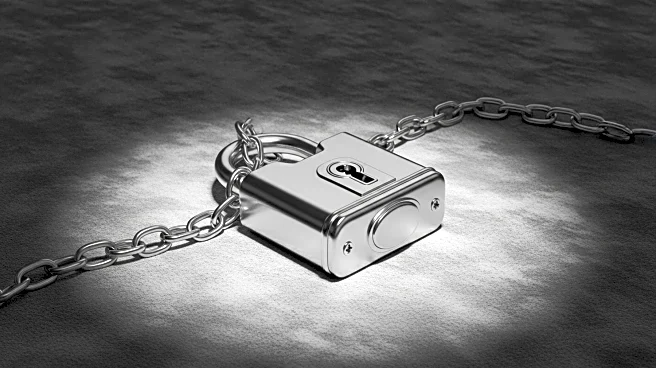What's Happening?
Taylor Swift has been granted a five-year restraining order against Brian Jason Wagner, who allegedly stalked her by repeatedly appearing at her home and making false claims about their relationship. According to court documents, Wagner insisted that Swift was the mother of his son and attempted to change his driver's license address to her residence. Swift expressed fear for her safety and that of her family due to Wagner's actions, which included concerning and threatening messages. The restraining order mandates Wagner to stay at least 100 yards away from Swift, her residence, vehicle, and workplace, and prohibits him from contacting her in any way. He is also required to surrender any firearms, ammunition, or body armor.
Why It's Important?
The restraining order highlights the ongoing issue of celebrity stalking, which poses significant safety concerns for public figures like Taylor Swift. Such incidents can lead to heightened security measures and impact the personal lives of those targeted. Swift's case underscores the importance of legal protections for individuals facing harassment and threats. The situation also reflects broader societal challenges in addressing mental health and ensuring public safety. For Swift, the restraining order provides a legal framework to safeguard her privacy and security, while also setting a precedent for similar cases involving high-profile individuals.
What's Next?
With the restraining order in place, Swift's security team will likely continue to monitor Wagner's activities to ensure compliance. Legal authorities may take further action if Wagner violates the terms of the order. Swift's team may also implement additional security measures to protect her and her family. The case could prompt discussions on improving legal processes and support systems for victims of stalking. Public awareness campaigns might be initiated to educate individuals on recognizing and reporting stalking behaviors, potentially leading to policy changes that enhance protections for victims.
Beyond the Headlines
The case raises ethical questions about privacy and the extent to which public figures can protect themselves from unwanted attention. It also highlights the legal system's role in balancing individual rights with public safety. The situation may influence cultural perceptions of celebrity privacy and the responsibilities of fans and the media in respecting boundaries. Long-term, this case could contribute to evolving legal standards and societal attitudes towards stalking and harassment, potentially leading to more robust protections for individuals facing similar threats.









